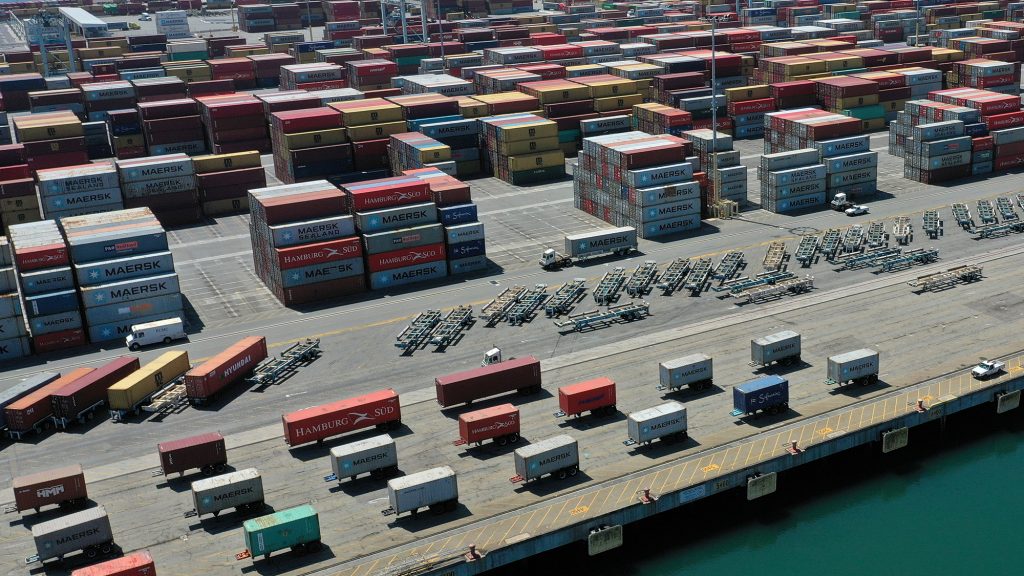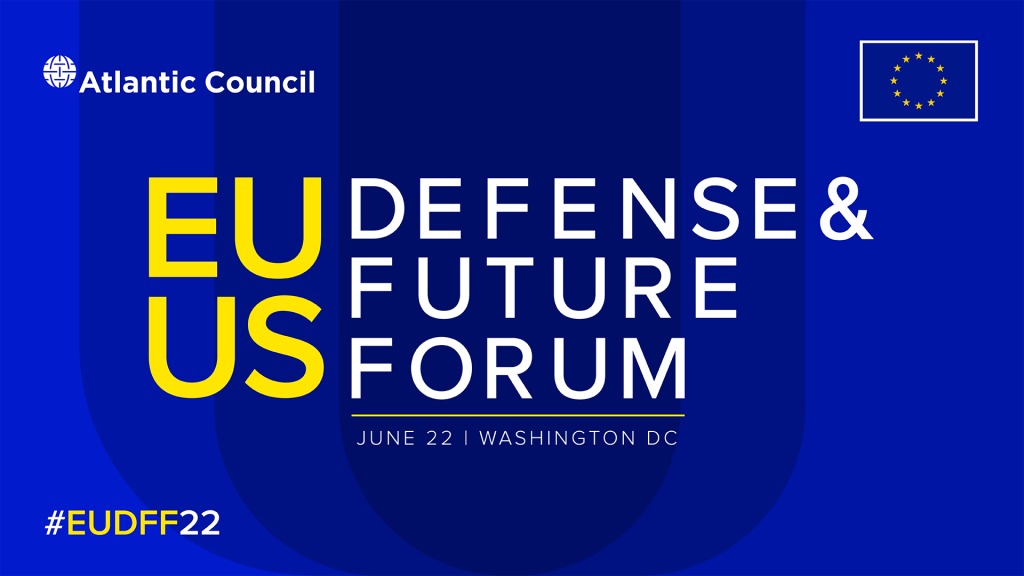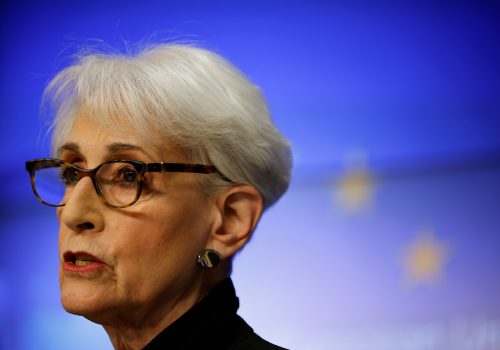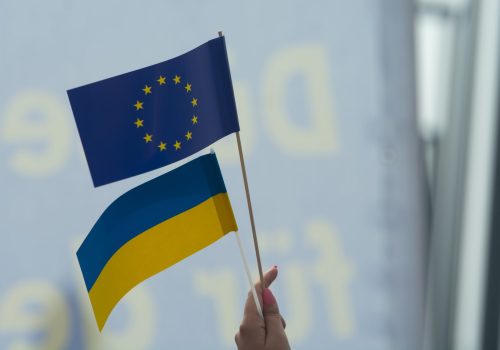Watch the full event
The global economy has been transformed by two massive shocks—the COVID-19 pandemic, followed by Russia’s invasion of Ukraine. The twin crises have brought into the foreground both Europe and the United States’ vulnerabilities to supply-chain disruptions, especially in critical commodities and the high-tech sector. “Resilience” is the byword in transatlantic debates on how to move forward—for not only securing countries on both sides of the Atlantic, but also framing the discussion for cooperation in the West.
Speaking at Wednesday’s EU-US Defense & Future Forum, Rupert Schlegelmilch, the acting deputy director-general for trade at the European Commission argued that while there is no alternative to transatlantic cooperation, the challenges ahead are not trivial. Joined on stage by Charles Lichfield, deputy director of the Atlantic Council’s GeoEconomics Center, the two sketched out how policymakers are approaching an uncertain future.
Here are some key takeaways from the conversation
- Schlegelmilch pointed out that while the supply-chain crisis creates opportunities for creative thinking in government, companies themselves have to make the actual decisions: “The policy response will come from companies, which will need encouragement, as well as sometimes some help and matchmaking, in order to help make us less dependent” on countries that are willing to weaponize trade flows.
- Schlegelmilch warned that while political pressure will be great for governments to fix economic problems at home, domestic solutions won’t work in a globalized economy. “We ought not outcompete ourselves with subsidies,” he said. “Having diversified, resilient supply chains means working with partners to make sure that a domestic solution does not unfairly disadvantage our allies.”
- Lichfield predicted that the economic pain may lead the United States to be out of synch with Europeans at times. “You don’t want to waste the crisis, but the crisis presents challenges that divert us from a common goal,” he said. Lichfield remains convinced that the goals of the transatlantic community will converge in the medium term, but different approaches may predominate in the immediate future.
- Lichfield added that the new transatlantic approach to trade is forward-leaning instead of problem-resolving. The new EU-US Trade and Technology Council, for example, was not set up to help remove barriers, “but is about anticipating the barriers thrown up by emerging technologies—anticipating divergence and making sure it doesn’t happen.”
- Schlegelmilch said that the ambition for transatlantic cooperation should be strengthening a global set of rules of the road, not just addressing bilateral issues: “Without the EU and US working together feeding the multilateral process, it will not work.”
Damir Marusic is a senior fellow at the Europe Center.
Watch the full event
Further reading
Wed, Jun 22, 2022
Wendy Sherman and Stefano Sannino on Ukrainian EU membership, Russian escalation, and Chinese technology
Transcript By
US Deputy Secretary of State Sherman and European External Action Service Secretary-General Sannino joined the Atlantic Council to talk about the transatlantic relationship and the roles of the European Union and United States in addressing the world's challenges.
Tue, Jun 21, 2022
What would EU candidate status mean for Ukraine?
UkraineAlert By Peter Dickinson
Ukrainians expect the country to be granted official EU candidate nation status at this week's summit of European leaders but what would this mean for Ukraine's broader ambitions for greater Euro-Atlantic integration?
Sun, Jun 19, 2022
EU candidate status for Ukraine is the ideal response to Russian aggression
UkraineAlert By Diane Francis
European Union leaders must decide this week whether to grant Ukraine official EU candidate nation status. This is a critically important moment for Ukrainians that will also shape the future direction of the entire continent.
Image: Containers are seen on a shipping dock, as the global outbreak of the coronavirus disease (COVID-19) continues, in the Port of Los Angeles, California, U.S., April 16, 2020. Photo via REUTERS/Lucy Nicholson.




